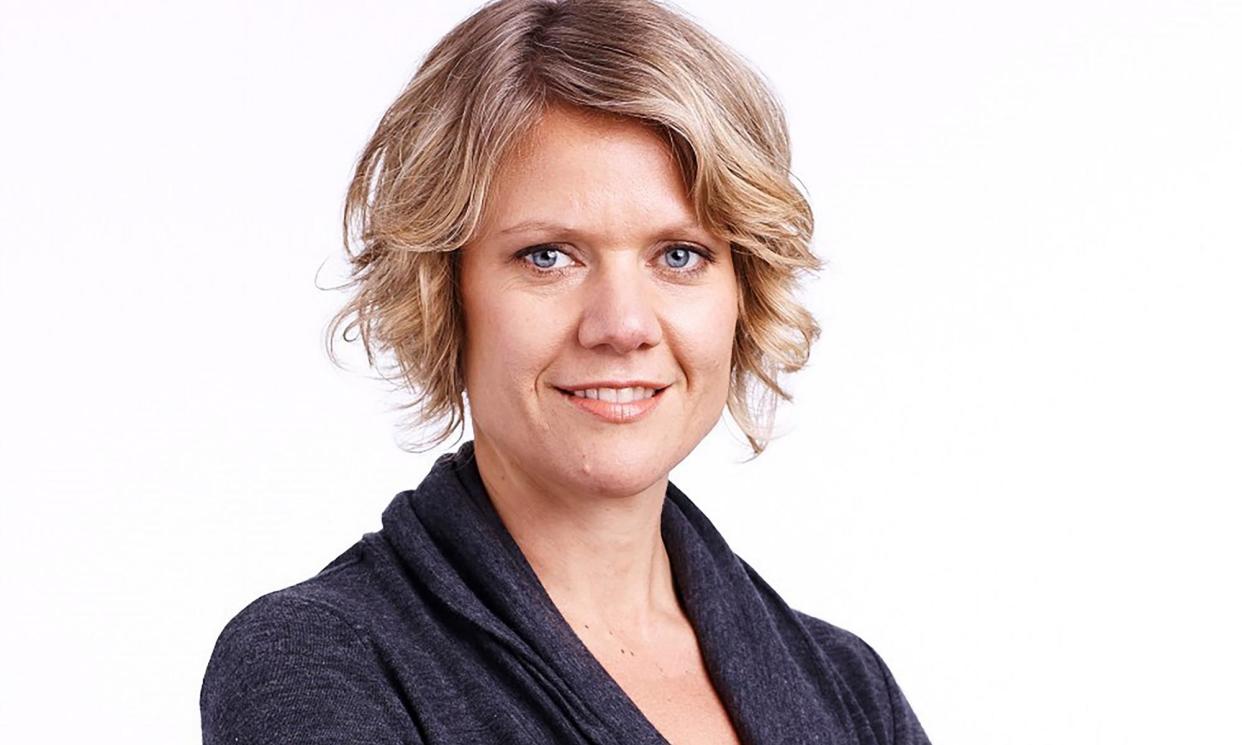Editor-in-chief of news.com.au among casualties in News Corp Australia restructure

Rupert Murdoch’s Australian media empire has been reorganised into mastheads which are free, tabloids which are subscription-based and so-called prestige titles the Australian newspaper and Vogue magazine.
The radical restructure dismantles the state-based organisation, centralises power along national lines and abolishes the role of several senior editorial executives.
Staff have been told a number of roles will change and “some impacted people will regrettably leave our business”.
The casualties of the restructure to emerge so far are Lisa Muxworthy, the editor-in-chief of Murdoch’s most popular Australian website news.com.au, and John McGourty, the group director of the Editorial Innovation Centre and a former deputy editor of the Daily Telegraph.
Staff said it was a surprising decision to let Muxworthy go, given the success of news.com.au, which is the most popular news website in the country with 12 million monthly readers to the Australian’s 3.5 million.
The executive chair of News Corp Australia, Michael Miller, said the structure would create “network scale and expertise to be majority consumer funded and digital first”.
The Australian and prestige mastheads division includes Vogue, The Weekend Australian Magazine and other Condé Nast titles. The managing director will be Nicholas Gray and the Australian’s editor-in-chief, Michelle Gunn, will add the magazines to her portfolio.
The state and community mastheads division will house the Herald Sun, the Daily Telegraph, the Courier-Mail and the Advertiser, as well regional and community publications, headed up by marketing executive Mark Reinke.
The free news and lifestyle mastheads division includes news.com.au, the NCA newswire and lucrative lifestyle digital brands such as Checkout, which receives payments from brands for publishing content. Pippa Leary has been named managing director and publisher and the Sunday Telegraph editor, Mick Carroll, will become editor-in-chief.
The editor of the Herald Sun, Sam Weir, will add the Hobart Mercury and Weekly Times to his portfolio.
The managing director of News in Queensland, Jason Scott, has been appointed executive editor, Sport Network.
The powerful Victorian executive Peter Blunden is moving to a part-time advisory role. The national reporting team will be overseen by the Daily Telegraph editor, Ben English.
“This strategy has diversified our revenue by growing consumer subscriptions and expanded our relationships with commercial clients with new digital and owned media products, while staying committed to great journalism and championing the causes Australians care about,” Miller told staff.
Unionised journalists agreed to an 11th-hour offer of a small pay rise in return for a cap on redundancy payments to high-earners before the announcement.
Lachlan Murdoch was joined in Sydney last week by the News UK boss, Rebekah Brooks, and the company’s global chief, Robert Thomson.
Murdoch became the sole chair of News Corp last year when Rupert Murdoch stepped down. Lachlan spends half of his time in Sydney and is also the chair of Fox Corporation.
The cuts to staff, which are still to fully emerge, are being made because of a downturn in the advertising market and declining revenue from social media platforms.
Facebook and Instagram’s parent company, Meta, said it would not be renewing three-year content deals struck with News Corp under Australia’s news media bargaining code.
Meta has said it would stop paying all Australian publishers for news and planned to shut down its news tab in Australia and the US.
The Media Arts and Entertainment Alliance said unionised staff at News Corp Australia had accepted a 12-month extension of their enterprise bargaining agreement with a pay rise of 3.5%, contingent on a cap on redundancy payouts of $399,500.
The company offered a 3% pay rise with no changes to conditions or a 3.5% pay rise with the redundancy cap. Members accepted the second option because only a handful of union members were earning enough to be affected.
“The cap on redundancy would affect a staff member on the equivalent of Grade 10 with a 20% margin who has been at News Corp more than 25 years,” the MEAA told staff.
“However, those affected could look to secure 12 months pay as their redundancy as per the News Corp policy or the capped amount, whichever is greater.”
The agreement will now be voted on by all journalists – unionised and non-unionised – and is expected to be endorsed.
News Corp’s local media assets, a division that includes its flagship newspaper the Australian, have been going through a period of prolonged weakness.
Revenue in that division fell 10% in the March quarter, driven by lower print and digital advertising income, even as the overall number of digital subscribers increased.
The financial weakness is also evident in News Corp’s UK newspapers, which is in keeping with a broad pullback experienced across the media sector, driven by advertisers reducing their spending during a period of heightened business costs due to inflation.
Traditional mastheads have also come under pressure from online-only publications attracting advertising that would have typically gone to the major papers.
One of News Corp’s most prized Australian assets is not a publisher or broadcaster but the online real estate company REA Group, which has enjoyed strong property listings and rising revenues on the back of a robust property market.
The performance of its subscription video services unit is mixed. The sports-focused Kayo and the streaming service Binge have been increasing paid subscribers while the more expensive traditional Foxtel service has been losing customers.
The US-listed media conglomerate owns mastheads in the US, the UK and Australia, with a newspaper stable that includes the Sun and the Times in London and the New York Post. It also runs the profitable Dow Jones unit that includes the Wall Street Journal.
News Corp has long said that it sees opportunities ahead as it expands the use of cost-saving AI-produced content. It has just signed a deal with Open AI that gives the ChatGPT developer access to current and archived content from all of News Corp’s publications.

 Yahoo News
Yahoo News 
